Unit 7 Education Options For School-Leavers Tiếng Anh Lớp 11 Global Success
Thầy Thắng
CHUYÊN ĐỀ LỚP 11
15
Ngày đăng: 29-01-2024 13:45:10

Các bạn có thể tham khảo file nghe Unit 7 Education Options For School-Leavers Tiếng Anh Lớp 11 Global Success tại đây.
MORE PRACTICE
Mark the letter A, B, C, or D to indicate the word whose underlined part differs from the other three in pronunciation in each of the following questions.
1. A. degree B. doctorate C. graduate D. kindergarten
2. A. bachelor B. chapter C. chemistry D. teacher
3. A. culture B. student C. institution D. university
4. A. appreciate B. psychology C. programme D. respectively
5. A. academic B. apply C. apology D. achieve
6. A. distance B. mandatory C. doctorate D. major
7. A. college B. credit C. degree D. respective
8. A. passion B. collaboration C. analyse D. exchange
9. A. based B. pursued C. applied D. arranged
10. A. modes B. colleges C. distances D. enriches
Mark the letter A, B, C, or D to indicate the word that differs from the other three in the position of primary stress in each of the following questions.
- A. internship B. applicant C. bachelor D. admission
- A. studious B. dependent C. critical D. cultural
- A. psychology B. achievement C. academy D. kindergarten
- A. admission B. history C. nursery D. difference
- A. mechanic B. chemistry C. cinema D. faculty
6. A. biology B. geography C. education D. relationship
7. A. broaden B. provide C. pursue D. succeed
8. A. college B. degree C. language D. subject
9. A. undergraduate B. opportunity C. qualification D. university
10. A. bachelor B. diploma C. internship D. scholarship
VOCABULARY
Mark the letter A, B, C, or D to indicate the word(s) CLOSEST in meaning to the underlined word(s) in each of the following questions.
1. Don't play down John’s contribution to the development of country’s education.
A. pretend B. estimate C. undervalue D. cooperate
2. If the examiner can't make sense of what your essay is about, you'll get the low mark.
A. declare B. estimate C. communicate D. understand
3. If you want to get a high mark on a test, review the material carefully beforehand.
A. performance B. score C. figure D. note
4. Some students only cram for tests when there is little time left, so their results are not satisfactory.
A. prepare in a short period B. prepare in a long time
C. prepare well D. prepare badly
5. My application for the scholarship was turned down because the grade transcript was insufficient.
A. cancelled B. postponed C. reduced D. rejected
6. School uniform is compulsory in most of Vietnamese schools.
A. depended B. required C. divided D. paid
7. In Scotland, students transfer from primary to secondary education at approximately age 12.
A. compound B. base C. change D. move
8. At the time, I didn't believe his remarks regarding our pupils' employment options were really appropriate.
A. correct B. right C. exact D. suitable
9. Primary in the U.S is required for all children regardless of race, religion, sex, or family background.
A. obligatory B. excellent C. free of charge D. easy
10. A woman can never be respected if she has no education or a good job.
A. looked up to B. looked down on C. kept up with D. come up with
Mark the letter A, B, C, or D to indicate the word(s) OPPOSITE in meanin the underlined word(s) in each of the following questions.
1. A further advantage of these audio-visual techniques is their independence from system availability.
A. benefit B. drawback C. characteristic D. danger
2. I thought you could change the world when I was a young, idealistic person.
A. applicable B. energetic C. practical D. thoughtless
3. We always appreciate feedback from friends, so if you have any questions or suggestions, please let us know.
A. depress B. welcome C. disregard D. consider
4. There are no unique entry requirements for these elective courses.
A. exit B. score C. academic D. strict
5. Overall, continuing education continues to be crucial to the development of any nation.
A. Typically B. Particularly C. Basically D. Unexpectedly
6. Students also have the opportunity to choose from a wide range of optional courses in the university.
A. mandatory B. selective C. free D. limited
7. Tom did miserably on the final test, which caused a shock to everyone in the class.
A. took B. sat for C. failed D. passed
8. Schools today are less tough about discipline than they were in the past.
A. accurate B. severe C. strict D. loose
9. Well, Mrs Baker, you'll be pleased to hear that George has made a dramatic improvement in geography.
A. meaningful B. important C. insignificant D. steady
10. University students get the chance to live independently, make new friends, and join various clubs in addition to studying.
A. pleasantly B. easily C. comfortably D. dependently
Mark the letter A, B, C, or D to indicate the correct answer to each of the following questions.
1. Numerous national exams require students to take English, which is a significant __________.
A. language B. test C. evaluation D. subject
2.__________ is the study of the geographical regions of the planet as well as their inhabitants, including people, plants, and animals.
A. Science B. Geography C. History D. Technology
3. It is not easy at all to get a good job without any _________ qualifications.
A. academic B. social C. great D. favourite
4. At the __________ level, you can join three-year or four-year colleges.
A. primary B. secondary C. postgraduate D. undergraduate
5. Hugh is quite worried because he hasn't _______ for the end-of-term test.
A. examined B. researched C. studied D. read
6. Any pupil caught ________ was made to stand at the front of the class.
A. misbehave B. misbehaved C. misbehaviour D. misbehaving
7. They _________ sacrifices so that their only child could have a good education.
A. made B. did C. provided D. lent
8. He did not do well at school and left with few _________ qualifications.
A. academic B. academy C. academician D. academically
9. You have to be highly _________ to do well in these subjects.
A. competitive B. competitor C. competition D. competing
10. Last night, to __________ his new strategy, the minister of the Department of Education and Training appeared on television.
A. public B. publicly C. publicize D. publicizing
11. He owed his success not to privilege but to self-education and a driving desire for _______.
A. achieve B. achiever C. achievement D. achievable
12. __________ and professional qualifications are available from the institution of higher learning.
A. Government B. Experience C. Requirement D. Academic
13. Fee-paying schools, often called "independent schools", "private schools" or “_______ schools".
A. college B. primary C. secondary D. public
14. You'll find plenty of books on the ________ of business studies in the library.
A. lesson B. subject C. curriculum D. schedule
15. I wonder if you could tell me who was awarded the ________.
A. scholar B. scholastic C. scholarship D. scholarly
16. Although ________ education is compulsory in England; parents are not required to send their children to state schools.
A. higher B. further C. secondary D. formal
17. Journalists sometimes wear ________ clothes to fit in well with the situation in which they are working.
A. ordinary B. common C. habitual D. casual
18. My job now is not _________ to what I was majored in at university.
A. devoted B. related C. supposed D. belonging
19. My dad said that I'd better spend more time on my _________.
A. student B. studied C. studious D. studies
20. There are not many __________ courses in the last two years at university. Most of them are compulsory.
A. required B. optional C. preferred D. additional
21. It is _________ to wear uniform to most high school nowadays.
A. obliged B. obliging C. obligational D. obligatory
22. When it comes to children's schooling problems, both parents have to ________ responsibility.
A. get B. respond C. compel D. take
23. Students who want to continue their _________ education in the UK are expected to take A-level course.
A. high B. tertiary C. secondary D. post-graduate
24.He was so ill that he could not ________ his final examination and cancelled it to the next year.
A. make B. do C. take D. gain
25. In Vietnamese schools, English, mathematics, and literature are three ________ subjects, which are compulsory in many important national examinations.
A. core B. part C. center D. middle
26. My dad wants me to go to university, but I'm in ________ minds about it.
A. different B. my C. some D. two
27. In England schooling is compulsory _________ all children from the age of 5 to 16.
A. with B. for C. to D. over
28. In Vietnam a school year lasts for nine months and is divided _________ two terms.
A. into B. to C. from D. on
29. To Vietnamese students, the _________ examination to university is very difficult.
A. require B. requirement C. requiring D. required
30. Despite many recent ________ advances, there are parts where schools are not equipped with computers.
A. technology B. technological C. technologically D. technologist
31. There is a wide range of ________ in the education system of the USA.
A. select B. selective C. selected D. selection
32. If you need to _________ the teacher's attention, just put up your hand.
A. attract B. pay C. take D. pull
33. The functional skills such as fundamentals of agriculture, health and hygiene and population education have also been incorporated in the primary school _________.
A. curriculum B. project C. plan D. schedule
34. I did six hours of ________ for the test, but I still failed badly.
A. education B. survey C. revision D. training
35. Australians and New Zealanders often have a/an ________ year before going to college or after finishing high school to travel overseas independently.
A. gap B. new C. busy D. graduation
36. It's my _________ ceremony next week; I think my parents are looking forward to it more than I am.
A. graduation B. graduate C. graduating D. graduates
37. Although Tom has not got necessary experience, he used to take a _______ in business administration.
A. curriculum B. course C. school D. class
38. Going to university is expensive because in addition to the tuition ________, there are expenses for accommodation, books, living costs, etc.
A. grants B. fees C. fares D. scholarships
39. Peter is trying his best to study in hope that he will _______ fame and fortune in the near future.
A. lose B. run C. move D. achieve
40.___________ is the study of the events of the past.
A. Geography B. History C. Arts D. Literature
41. She was the first in her family to enjoy the privilege of a university _________.
A. schedule B. education C. science D. technology
42. Next year, I have to decide which area of medicine I want to _________ in.
A. come B. focus C. hand D. specialise
43. I got a diploma in business administration, but still sometimes wish I had been able to go to university and get a _________.
A. certificate B. diploma C. degree D. scholarship
44. In the UK, _________ schools refer to government-funded schools which provide education free of charge to pupils.
A. state B. secondary C. independent D. primary
45. He didn't get the job he wanted because he didn't have the right___________.
A. knowledge B. qualifications C. relationship D. fame
46. More and more young people prefer __________education because they like to learn practical skills.
A. university B. college C. vocational D. higher
47. Many young people find it hard to get a job immediately after__________.
A. university B. school C. class D. graduation
48. Higher education is really for people who want formal learning in order to get an _________degree
A. academic B. university C. vocational D. college
49. This type of training not only provides students with hands-on__________, but also gives them wages to cover their living costs.
A. knowledge B. practice C. experience D. salary
50. This month, Teen Talk magazine has received many letters from secondary school students asking about the different _________ for school-leavers.
A. questions B. options C. opinions D. choices
51. ___________ only three hours, I can hardly focus on my work.
A. Having slept B. was slept C. slept D. sleeping
52. ___________ this movie last week, I still wanted to see it again.
A. Having seen B. Had seen C. Was seen D. Seeing
53.Tom was accused ___________ some top secret document.
- to steal B. of having stolen C. for stealing D. to have stolen
54. But after ___________ it over, I decided to laugh at myself and just join anyway.
- having thought B. I have thought C. thought D. to have thought
55. Are you sure you told me? I don’t recall ___________ about it.
A. having told B. having been told C. to have told D. to have been told
56.Mary said, “I regret ___________ him earlier in my life.”
- to meet B. not having met C. to have met D. at meeting
57. Tome made a bad mistake at work, but his boss didn’t fire him. He is happy about _________ a second chance.
A. giving B. having been given C. to have been given D. to give
58___________ from the horseback, he was taken to hospital and had an operation.
- When falling B. As he was fallen C. After having fallen D. To fall
59. ___________ the bottles, Mike poured the drinks for everyone.
A. to open B. To have opened C. Being opened D. Having opened
60. Mr. Lee was upset by ___________ the truth.
A. not having been told B. us not to tell him C. he hadn’t been told D. being not told
61._________ the desalination plant, the company could offer an effective solution to the problem of water scarcity.
A. To build B. Having built C. Being built D. Having been built
62. He forgot _________ promised to cut down on the carbon dioxide emissions into the atmosphere.
A. to promise B. have C. having D. had
63. _________for years, he died because of lung cancer.
A. Having been smoking B. Having smoked C. Have smoked D. Being smoked
64. Having _________ the important lesson, she couldn't finish her test.
A. missed B. passed C. gone D. taken
65. Even when arrested, he denied _________ cut down that tree.
A. has B. having C. have D. have had
66. I remembered having _________ off the lights after learning before leaving home.
A. switched B. switch C. switching D. switches
67. The public praised the local farmers for_________millions of trees on the surrounding hills.
A. plant B. being planted C. being planting D. having planted
68. But after __________ it over, I decided to laugh at myself and just join anyway.
A. having thought B. I have thought C. thought D. to have thought
69. Mary said, “I regret ________ him earlier in my life.”
A. To meet B. not having met C. to have met D. at meeting
70. __________ from the horseback, he was taken to hospital and had an operation.
A. When falling B. As he was fallen C. After having fallen D. To fall
WORD FORM
1. This month, Teen Talk magazine has received many letters from secondary school students asking about the different __________ for school-leavers. (OPT)
2. There are a lot of ____________opportunities for school-leavers today. (EDUCATE)
3. Many school-leavers choose to go to university to study __________ subjects. (ACADEMY)
4. Many young people find it hard to get a job ___________ after graduation. (IMMEDIATE)
5. Vocational education is often referred to as career education or __________ education. (TECHNIQUE)
6. It's possible that students may need certain _____________or prerequisites to apply for this course, such as a high school diploma or previous experience in cooking. (QUALIFIED)
7. It ultimately depends on the specific __________ of the course and the institution offering it. (REQUIRE)
8.____________ , students may hope to gain hands-on experience in cooking and receive feedback on their dishes from their instructor. (ADDITION)
9. Students in this course likely expect to learn various cooking techniques and recipes, as well as gain a deeper ____________ of the culinary arts. (UNDERSTANDABLE)
10. Having won several biology competitions, I want to study biology and become a____________. (SCIENCE)
Mark the letter A, B, C, or D to indicate the underlined part that needs correction in each of the following questions.
1. My brother has applied for that scholarship for months, but he has never succeeded yet.
A B C D
2. I have found a lot of informations about the history of English language teaching recently.
A B C D
3. I have never been understanding why such a lot of people want to study abroad.
A B C D
4. Due to the geographical barrier, he has been deciding to choose distance education in order to get
A B C D
his university degree.
5. Lily couldn't answer any questions in the end-of-term examination this morning, but she thinks she
A B C
has failed.
D
6. Many teachers have devoted their lives to teaching; therefore teaching is not a well-paid job.
A B C D
7. This is the most embarrassed problem that I have ever seen.
A B C D
8. Having lived in city for ten years, she is used to stay up late.
A B C D
9. Having deciding on the topic of the presentation, he started finding relevant information for it.
A B C D
10. Having identified the most urgent environmental problems, they start working out all possible
A B C D
solutions.
Mark the letter A, B, C, or D to indicate the correct response to each of the following exchanges.
1. John and Mary are talking to each other.
John: “Could you just hand me that book, John?”
Mary: “______________”
A. Yes, of course. B. I disagree, why? C. In reality, I'm occupied. D. You can start now.
2. John and Mary are talking to each other.
John: "If I were you, I'd apply for the University of Melbourne scholarship."
Mary: “___________________”
A. I don't feel afraid. B. Never! C. I suppose I ought to. D. So, I hope.
3. John and Mary are talking to each other.
John: "I heard you passed the examination. Congratulations!”
Mary: “_______________”
A. It's too bad! B. I'm happy to help. C. I'm doing fine. D. Many thanks.
4. John and Mary are talking to each other.
John: “Why did you decide to major in French, Mary?”
Mary: “______________”
A. Because it is very similar to English. B. Due of their friendliness.
C. I truly don't care. D. It's nice to say so.
5. Lisa and Mary are talking to each other.
Lisa: “Can I have a quick look at your lecture notes?”
Mary: “________________”
A. Of course not today. B. So far, so good!
C. No, I don't think so. D. Sorry, I'm using them myself.
6. John and Mary are talking to each other.
John: "Let's go to the Dr. Millet's seminar on learning styles this afternoon!”
Mary: “_____________”
A. I wish I could but I'm busy then. B. Learning styles are really subjective.
C. Thanks, I won't. D. I would if I were you.
7. David and his mom are talking to each other.
David: "Mom, I've received an offer for a summer internship in Singapore!”
David’s mom: “___________________”
A. Really? Good luck! B. Oh, that's great! Congratulations!
C. I couldn't agree more. D. Oh, I'm sorry to hear that.
8. Mathew and Mary are talking to each other.
Mathew: “Sorry, I'm late! May I come in, Ms Mary?”
Mary: “______________”
A. Yes, come in, please! B. Not right now. C. Let's do it! D. I guess so.
9. Tom and Mary are talking to each other.
Tom: "What an imaginative essay you've written, Matt!”
Mary: “______________”
A. That's the least I could do. B. Actually, I don't mind.
C. Thanks, it's nice of you to say so. D. Sorry, just my luck!
10. John and Mary are talking to each other.
John: “It was very kind of you to help me with the difficult homework!"
Mary: “________________”
A. Oh, don't mention it. B. Sorry, I don't know. C. That sounds nice. D. Thanks a lot.
READING COMPREHESION
Read the following passage and mark the letter A, B, C, or D to indicate the correct answer to each of the questions.
One way of training for your future occupation in Germany is by pursuing a dual vocational training programme. Such programmes offer plenty of opportunity for on-the-job training and work experience. Programmes usually last between two and three and a half years and comprise theoretical as well as practical elements. You will spend one or two days a week, or several weeks at once, at a vocational school where you will acquire the theoretical knowledge that you will need in your future occupation. The rest of the time will be spent at a company. There you get to apply your newly acquired knowledge in practice, for example by learning to operate machinery. You will get to know what your company does, learn how it operates and find out if you can see yourself working there after completing your training.
This combination of theory and practice gives you a real head start into your job: by the time you have completed your training, you will not only have the required technical knowledge, but you will also have hands-on experience in your job. There are around 350 officially recognised training programmes in Germany, so chances are good that one of them will suit your interests and talents. You can find out which one that might be by visiting one of the jobs and vocational training fairs which are organised in many German cities at different times in the year.
Employment prospects for students who have completed a dual vocational training programme are very good. This is one of the reasons why this kind of training is very popular with young Germans: around two thirds of all students leaving school go on to start a vocational training programme.
1. Which of the following is probably the best title of the passage?
A. Employment Opportunities and Prospects in Germany
B. Combination of Theory and Practice in Studying in Germany
C. Dual Vocational Training System in Germany
D. Higher Education System in Germany
2. The word "it" in the first paragraph refers to ______.
A. company B. machinery C. knowledge D. organisation
3. Which of the following statements best describes the dual vocational training programmes?
A. These programmes consist of an intensive theoretical course of two and a half years at a vocational school.
B. These programmes require you to have only practical working time at a certain company.
C. These programmes offer you some necessary technical skills to do your future job.
D. These programmes provide you with both theoretical knowledge and practical working experience.
4. The word "hands-on” in the second paragraph is closest in meaning to ____.
A. theoretical B. practical C. technical D. integral
5. How many German school leavers choose this vocational training programme?
A. well over 75% B. around one out of five
C. less than a third D. about 70%
Read the following passage and mark the letter A, B, C, or D to indicate the correct answer to each of the questions.
Normally a student must attend a certain number of courses in order to graduate, and each course which he attends gives him a credit which he may count towards a degree. In many American universities the total work for a degree consists of thirty-six courses each lasting for one semester. A typical course consists of three classes per week for fifteen weeks, while attending a university a student will probably attend four or five courses during each semester. Normally a student would expect to take four years attending two semesters each year. It is possible to spread the period of work for the degree over a longer period. It is also possible for a student to move between one university and another during his degree course, though this is not in fact done as a regular practice.
For every course that he follows a student is given a grade, which is recorded, and the record is available for the student to show to prospective employers. All this imposes a constant pressure and strain of work, but in spite of this some students still find time for great activity in student affairs. Elections to positions in student organizations arouse much enthusiasm. The effective word of maintaining discipline is usually performed by students who advise the academic authorities. Any student who is thought to have broken the rules, for
example, by cheating has to appear before a student court. With the enormous numbers of students, the operation of the system does involve a certain amount of activity. A student who has held one of these positions of authority is much respected and it will be of benefit to him later in his career.
1. How many classes each week would a student normally attend at least?
A. 36 B. 20 C. 12 D. 15
2. According to paragraph 1, an American student is allowed ________.
A. to live in a different university.
B. to take a particular course in a different university.
C. to live at home and drive to classes.
D. to get two degrees from two different universities.
3. American university students are usually under pressure of work because ________.
A. their academic performance will affect their future careers.
B. they are heavily involved in student affairs.
C. they have to observe university discipline.
D. they want to run for positions of authority.
4. Some students are enthusiastic for positions in student organizations probably because ________.
A. they hate the constant pressure strain of their study.
B. they will then be able to stay longer in the university.
C. such positions help them get better jobs.
D. such positions are usually well paid.
5. The student organizations seem to be effective in ________.
A. dealing with the academic affairs of the university.
B. ensuring that the students observe university regulations.
C. evaluating students' performance by bringing them before a court.
D. keeping up the students' enthusiasm for social activities.
Read the following passage and mark the letter A, B, C, or D to indicate the correct word or phrase that best fits each of the numbered blanks.
GAP YEAR
In the professional or career world, a gap year is a year before going to college or university and after finishing high school or (1) _______ a year off before going into graduate school after completing a bachelor as an undergraduate. (2) _______ this time, students may engage in advanced academic courses, extra-academic courses and non-academic courses, such as yearlong pre-college math courses, language studies, learning a trade, art studies, volunteer work, travel, internships, sports and more. Gap years are sometimes considered a way for students to become independent and learn a great deal of (3) _______ prior to engaging in university life.
Australians and New Zealanders have a tradition of travelling overseas independently (4) _______ a young age. In New Zealand, this is known as “doing an OE” (Overseas Experience). Sometimes, an OE is (5) _______ to one year, but often Australians and New Zealanders will remain overseas for three to five years, with many working short-term in service industry jobs to fund their continuing travels.
1. A. calling B. going C. taking D. turning
2. A. During B. When C. While D. By
3. A. responsible B. responsibility C. irresponsible D. irresponsibility
4. A. at B. on C. in D. for
5. A. distributed B. used C. spent D. limited
Read the following passage and mark the letter A, B, C, or D to indicate the correct word or phrase that best fits each of the numbered blanks.
EXAM OR CONTINUOUS ASSESSMENT?
How do you feel when you sit an exam? Do you always succeed in getting all your ideas down on paper, or do you sometimes feel that you're (1) _______ a mess of it? Apart from those lucky few who sail through exams, most secondary school pupils find them very stressful. Many teachers are (2) _______ of the problems their students face and use a different method for measuring their progress: continuous. With continuous assessment, students are given (3) _______ tasks to do throughout the year. All their marks are added together to produce a total mark (4) _______ the end of the year. Students have to (5) _______ more responsibility for their education because they can't rely on doing well on just one day. Also, they have more time to think over their work, meaning that they are able to do their best.
1. A. doing B. having C. making D. taking
2. A. aware B. intelligent C. recognisable D. knowledgeable
3. A. variety B. various C. vary D. variably
4. A. at B. on C. in D. from
5. A. do B. get C. make D. take
Fill in each numbered blank with one suitable word or phrase.
The General Certificate of Secondary Education or the GCSE examinations for (1) _______ are the standard school-leaver qualifications taken by (2) _______ all UK students in the May and June following their 16th birthday. If you come to a UK (3) _______ school before you reach the age of 16, you will study towards GCSE examinations in up to 12 subjects. Some subjects are compulsory, including English and mathematics, and you can select (4) _______ such as music, drama, geography and history from a series of options. GCSEs provide a good all-round education (5) _______ you can build on at college and eventually at university.
- A. short B. long C. big D. long
- A. similarly B. fortunately C. approximately D. virtually
- A. dependence B. independence C. independent D. independently
- A. other B. each other C. another D. others
- A. what B. that C. where D. whose
Mark the letter A, B, C, or D to indicate the sentence that is closest in meaning to each of the following questions.
1 It's only her second time in an international conference about further education.
A. It was the second time she had been in an international conference about further education.
B. She has only been in an international conference about further education once before.
C. She has never been to any international conference about further education before.
D. She has already got used to being in an international conference about further education.
2. I started writing this essay hours ago and it's still not right.
A. I have been writing this essay for hours and it's still not right.
B. It's hours ago since I last wrote this essay correctly.
C. The last time I started writing this essay was hours ago, which is still not right.
D. I didn't stop to write this essay hours ago and it's still not right.
3. “You'd better work harder if you don't want to retake the exam!” the teacher said to Jimmy.
A. The teacher advised Jimmy to work harder if he didn't want to retake the exam.
B. The teacher ordered Jimmy to work harder if he didn't want to retake the exam.
C. The teacher reminded Jimmy to work harder if he didn't want to retake the exam.
D. The teacher warned Jimmy to work harder if he didn't want to retake the exam.
4. Lisa has never studied abroad before.
A. It's the first time Lisa has ever studied abroad.
B. It's the last time since Lisa studied abroad.
C. It was the first time Lisa had ever studied abroad.
D. Never before Lisa has studied abroad.
5. The last time my friend wrote a letter to me was in February.
A. I haven't never received a letter from my friend since February.
B. I last received a letter from my friend in February.
C. It was in February since I first received a letter from my friend.
D. My friend last wrote a letter to me when in February.
6.We have decided that the work they do is unacceptable.
A. As they do the work which we have decided is unacceptable.
B. they have been decided that the work they do is unacceptable.
C. It has been decided that the work being done is unacceptable.
D. We have decided that we accept the work they do.
7. It is good exercise to walk a mile a day.
A. For walking a mile a day is good exercise C. Good exercise is for walk a mile a day
B. In order to walk a mile a day is good exercise D. Walking a mile a day is good exercise
8. After Louie had written his composition, he handed it to his teacher.
A. Handed the composition to his teacher, Louie wrote it
B. Having written his composition, Louie handed it to his teacher.
C. Writing the composition. Louie handed it to his teacher.
D. Handing the composition, Louie had written his composition.
9. While the director was guiding us through the museum, he gave us a special explanation.
A. Guiding us through the museum, a special explanation was given by the director
B. Guided us through the museum, the director gave us a special explanation
C. A special explanation was given to us while guiding us through the museum
D. Guiding us through the museum, the director gave us a special explanation.
10. Although we felt cold, we kept walking.
A. Despite feeling cold, we kept walking b. however we felt cold, we kept walking
C. Felt cold, but we kept walking d. we kept walking even though feeling cold
Mark the letter A, B, C, or D to indicate the sentence that best combines each pair of sentences in the following questions.
1. Marie prepared her homework carefully. She could answer all the questions and got good marks.
A. Although she prepared her homework carefully, Marie could not answer all the questions and got good marks.
B. Having prepared her homework carefully, Marie could answer all the questions and got good marks.
C. If she had prepared her homework carefully, Marie could have answered all the questions and got good marks.
D. It was because of her careful preparation for the homework, Marie couldn't answer all the questions and got good marks.
2. We have been trying to learn English for years. We haven't succeeded yet.
A. Although we have been trying to learn English for years, we haven't succeeded yet.
B. After we've been trying to learn English for years, we have succeeded.
C. We haven't succeeded yet since we have been trying to learn English for years.
D. We have been trying to learn English for years, so we haven't succeeded yet.
3. The teacher was giving the lesson. The lights went out.
A. The lights went out as soon as the teacher started giving the lesson.
B. If the teacher had been giving the lesson, the lights wouldn't have gone out.
C. The teacher was giving the lesson, so the lights went out.
D. While the teacher was giving the lesson, the lights went out.
4. Tom only started learning English last year. However, he can now speak it like a native.
A. If he had started learning English last year, Tom could now speak it like a native.
B. After starting learning English last year, Tom can now speak it like a native.
C. Although he only started learning English last year, Tom can now speak it like a native.
D. Tom, who has only started learning English since last year, can now speak it like a native.
5. The man jumped out of the boat. He was bitten by a shark.
A. Bitten by a shark, the man jumping out of the boat.
B. After jumping out of the boat, the man was bitten by a shark.
C. After bitten, the shark jumping out of the boat.
D. After jumping out of a boat, the shark bit the man
6. He is a rich man. He leads a simple life.
A. If he were a rich man, he would lead a simple life.
B. Although he is rich, he leads a simple life.
C. As he is rich, he leads a simple life.
D. Until he leads a simple life, he is a rich man.
7. Jack dropped out of school at the age of 15. He now regrets it.
A. If only Jack had dropped out of school when he was 15.
B. If Jack dropped out of school when he was 15, he would regret it.
C. Jack wishes he hadn’t dropped out of school when he was 15.
D. Jack regrets not having dropped out of school when he was 15.
8. Our children look tired today. I guess they stayed up late last night.
A. Our children should have stayed up late last night as they look tired today.
B. Our children might have stayed up late last night as they look tired today.
C. Our children must have stayed up late last night as they look tired today.
D. Our children can’t have stayed up late last night as they look tired today.
9. Tom was in secondary school. Then, he began to study English.
A. Tom was studying English when he was in secondary school.
B. Tom had studied English in secondary school.
C. Tom hasnot studied English since he was in secondary school.
D. Tom has been studying English since he was in secondary school.
10. He made a great discovery. He was very proud of it.
A. He was very proud of what he made a great discovery.
B. He took pride in making a great discovery.
C. He was interested in a great discovery.
D. He was very proud of he made a great discovery.
WRITING
Rewite the sentences, using perfect participles.
1. After I watched the documentary about wildlife, I made a donation to an environmental society.
-> Having ____________________________________________.
2. After I ate my evening meal, I decide to go for a walk.
-> Having________________________________________
3. Because I had spent the entire day cleaning up my room, I needed to take a shower and have a rest.
-> Having ________________________________________
4.Since the authorities had managed water resources irresponsibly, they had to deal with water shortages in the region.
-> Having ____________________________________________.
5. After we had read the stories about people who reduced their carbon footprint, we started to change our daily consumption.
-> Having ___________________________________________.
6.Because the farmers had been told about the dangers of chemical fertilisers, they turned to bio-fertilisers.
-> Having __________________________________________.
7. After I finished all my homework, I watched my favourite film on TV.
-> Having __________________________________________.
8. After we made all necessary preparations, we put our plan into action.
-> Having__________________________________________.
9. We switched off the lights before we went to bed.
->___________________________________________
10. After I ate my evening meal, I decided to go for a walk.
-> Having _________________________________________.
Combine the sentences, using perfect gerunds.
1.Tonya had dumped a lot of rubbish on the beach. She was strongly criticised for that.
-> Tonya was strongly criticised for_________________________________________________.
2. He said that he would take responsibility for the project. But then he denied that.
-> He denied_________________________________________
3. He didn’t keep his promise. He apologised for that.
-> He apologised for___________________________________
4. He risked his own life to rescue the little boy. He was really admired for that.
-> He was really admired for___________________________________________________
5. She raised $20,000 for wildlife protection. She was praised for that.
-> She was praised for___________________________________
6. I have advised you on how to cut down your energy use. I remember that.
-> I remember _________________________________________
7. Some scientists have not reported the effects of climate change. They were accused of that.
-> Some scientists were accused of________________________________________________.
8. They have acted irrresponsibly towards the environment. They were criticised for that.
-> They were critcised for______________________________
9. The factory has dumped a huge amount of rubbish into the river. It was fined for that.
-> The factory was fined for________________________________.
10. Christopher apologized. He’d forgotten to pay.
-> Christopher apologized for _____________________________.
---THE END---
Giải đáp mọi thắc mắc trong đề - mua bản word và đáp án vui lòng liên hệ Zalo: 034 8371 758
Theo dõi fanpage để cập nhật nhanh các bài tập và đề kiểm tra mới nhất.
https://www.facebook.com/profile.php?id=61555984765050
Bài Viết Liên Quan

Unit 6 Preserving Our Heritage Tiếng Anh Lớp 11 Global Success (13.02.2025)

Unit 6 Preserving Our Heritage Tiếng Anh Lớp 11 Global Success (13.02.2025)

Unit 6 Preserving Our Heritage Tiếng Anh Lớp 11 Global Success (11.02.2025)
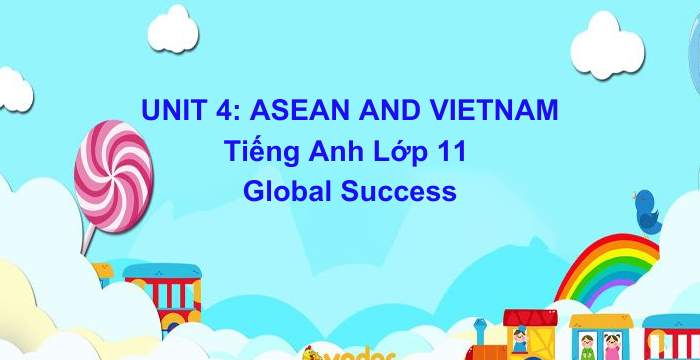
Bài Tập Unit 4 ASEAN AND VIETNAM Tiếng Anh Lớp 11 Global Success (28.11.2024)
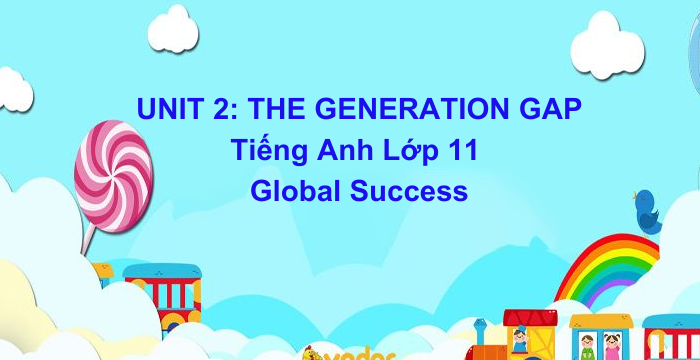
Bài Tập Bổ Trợ UNIT 2 THE GENERATION GAP Tiếng Anh Lớp 11 Global Success (22.10.2024)
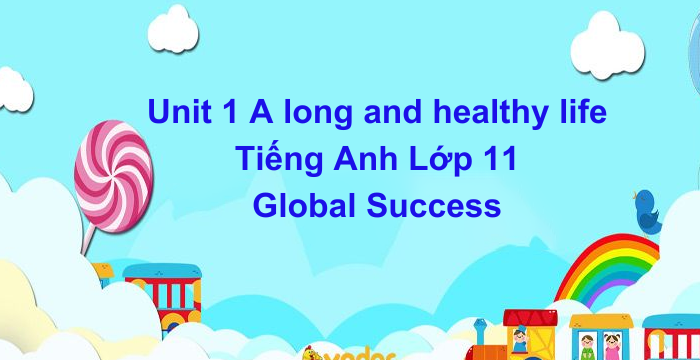
Bài Tập Bổ Trợ UNIT 1 A LONG AND HEALTHY LIFE Tiếng Anh Lớp 11 Global Success (02.10.2024)

Bài Tập Bổ Trợ UNIT 1 A LONG AND HEALTHY LIFE Tiếng Anh Lớp 11 Global Success (01.10.2024)

Bài Tập Bổ Trợ UNIT 1 A LONG AND HEALTHY LIFE Tiếng Anh Lớp 11 Global Success (25.08.2024)
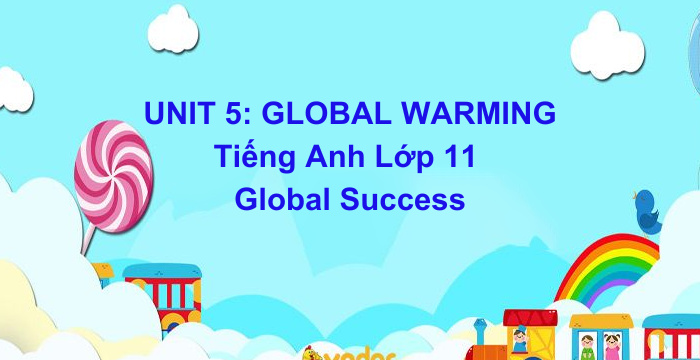
Bài Tập UNIT 5 GLOBAL WARMING Tiếng Anh Lớp 11 Global Success (08.06.2024)

Bài Tập Unit 4 ASEAN AND VIETNAM Tiếng Anh Lớp 11 Global Success (07.06.2024)

Bài Tập Unit 3 Cities Of The Future Tiếng Anh Lớp 11 Global Success (31.05.2024)

Bài Tập Unit 2 The generation gap Tiếng Anh Lớp 11 Global Success (30.05.2024)

Bài Tập Unit 1 A long and healthy Life Tiếng Anh Lớp 11 Global Success (21.05.2024)

File Nghe Unit 10 The Ecosystem Tiếng Anh Lớp 11 Global Success (14.04.2024)

Bài Tập Unit 9 Social Issues Tiếng Anh Lớp 11 Global Success (12.04.2024)

Bài Tập Unit 9 Social Issues Tiếng Anh Lớp 11 Global Success (2.04.2024)

Bài Tập Unit 10 The Ecosystem Tiếng Anh Lớp 11 Global Success (1.04.2024)

File Nghe Unit 9 Social Issues Tiếng Anh Lớp 11 Global Success (21.03.2024)

Bài Tập Unit 9 Social Issues Tiếng Anh Lớp 11 Global Success (19.03.2024)
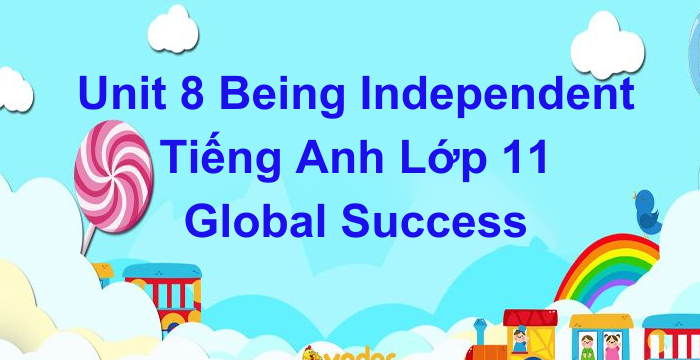
Unit 8 UNIT 8: Being Independent Tiếng Anh Lớp 11 Global Success(19.03.2024)

Revision On Unit 7 Education Options For School-Leavers Tiếng Anh Lớp 11 Global Success 22.02.2024

File Nghe Unit 8 Being Independent Tiếng Anh Lớp 11 Global Success 19.02.2024

Unit 8 Being Independent Tiếng Anh Lớp 11 Global Success 19.02.2024

File Nghe Tiếng Anh Lớp 11 Global Success Unit 7 Education Options For School-Leavers

Unit 7 Education Options For School-Leavers Tiếng Anh Lớp 11 Global Success

File Nghe Tiếng Anh Lớp 11 Global Success Unit 6 Preserving Our Heritage

Bài Tập Unit 6 Preserving Our Heritage Tiếng Anh Lớp 11 Global Success
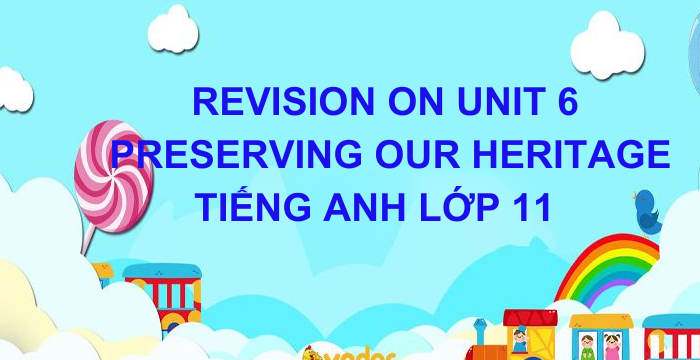
Revision On Unit 6 Preserving Our Heritage Tiếng Anh Lớp 11 Global Success

Unit 6 Preserving Our Heritage Tiếng Anh Lớp 11 Global Success
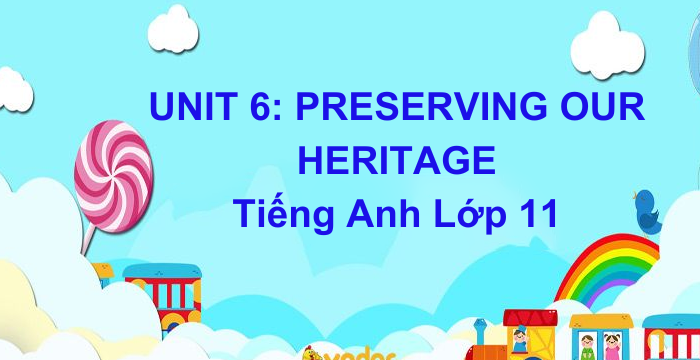
Trắc Nghiệm Unit 6 Preserving Our Heritage Tiếng Anh Lớp 11 Global Success

Bài Đăng Gần Đây

Đề Kiểm Tra Giữa Kì 2 Tiếng Anh Lớp 7 Global Success (3.2.2026)

Đề Kiểm Tra Cuối Kì 1 Tiếng Anh Lớp 10 Global Success (02.01.2026)

Đề Cương Ôn Tập Cuối Học Kì 1 Tiếng Anh Lớp 8 Global Success (30.12.2025)

Đề Kiểm Tra Cuối Kì 1 Tiếng Anh Lớp 6 Global Success (30.12.2025)

